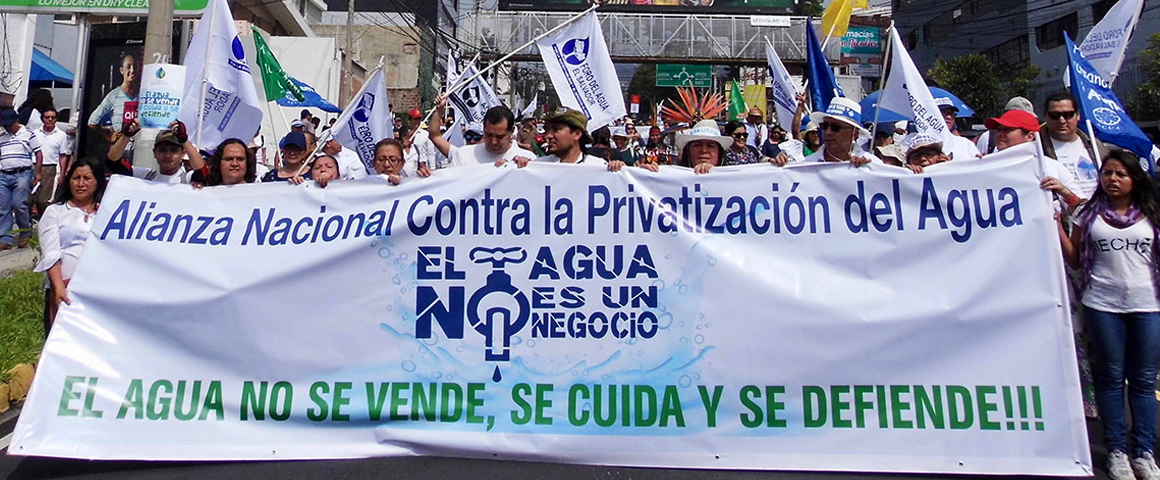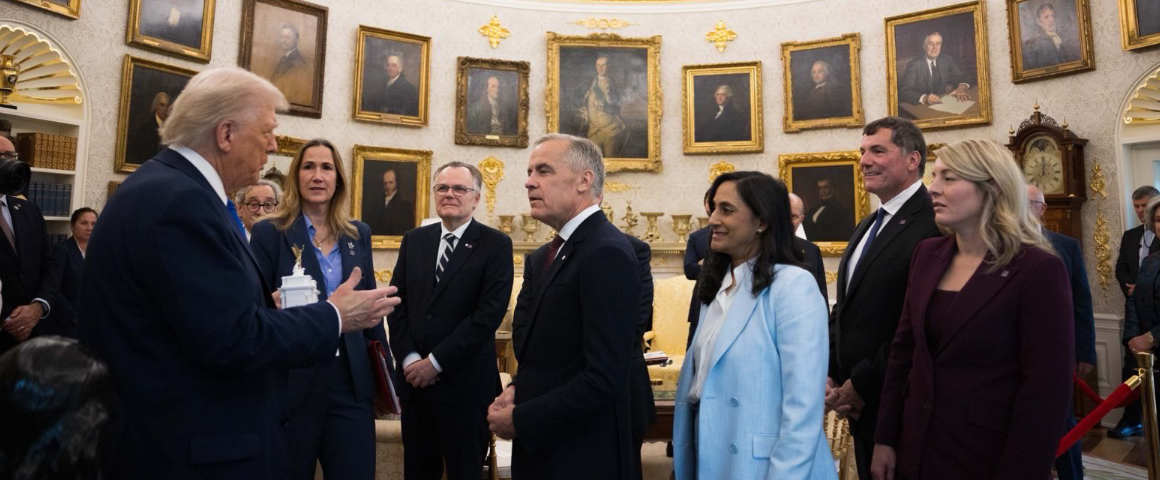SAN SALVADOR – ARENA, the leading right-wing party in El Salvador’s Legislative Assembly, is attempting to push through a new “Water Law” which would privatize the country’s water distribution company, ANDA. But hundreds of students, academics, workers, and social movement activists have taken to the streets to protest the proposal and demand the Legislative Assembly cease its tabling of the bill.
On June 14, the University of El Salvador cancelled classes as University employees and students alike poured into the streets of the capital, San Salvador. They marched on the Palace of Government to deliver a correspondence from the University’s faculties condemning the bill and outlining a strategic plan to better guarantee clean water to all Salvadorans. The protest was ended when police attacked protestors gathered outside the Legislature building with pepper spray before the correspondence could be delivered, prompting a condemnation from local civil rights organizations.
Local organizations The Social Initiative for Democracy and the Citizen Network for Democracy and Transparency issued a joint statement, demanding that the speaker of the legislature, ARENA deputy Norman Quijano, “carry out the relevant measures” to determine who was responsible for the repression, and to “guarantee that this never happens again”.
Hilary Goodfriend, a Salvadoran resident and regular contributor to the NACLA report, tweeted the day of the repression, saying: “The FMLN’s [two] terms in office saw unprecedented state respect [and] tolerance for social movement protests, including plenty opposing the government. Today’s repression by the new right-wing legislature against National University students was a wake-up call for many young people”
The right-wing ARENA, which currently dominates the legislature, was close to the military dictatorship which ruled El Salvador with US support for several decades. Despite its significant presence at the level of national politics, it is widely unpopular and won many seats mainly because leftist voters stayed home, disappointed with elements of the leftist FMLN’s track record while in office.
Despite repression of the previous demonstrations, popular organizations in San Salvador continued to organize unperturbed. On Saturday, June 16, popular organizations again mobilized, this time on the other side of the city along Redondel Masferrer. According to an event description on Facebook by the organization Salvadorans United for the Right to Water, this was “to ensure Don Norman [Quijano] sees us”.
Salvadorans have faced the prospect of water privatization before and fought back. In 2006, with the signing of the Central American Free Trade Agreement (CAFTA) with the United States, there was immense pressure put on the country to privatize its water distribution infrastructure and open its lakes and rivers to exploitation by foreign water companies, but this was forestalled by protests.
Since the signing and implementation of CAFTA, privatization has happened on a smaller scale in various municipalities, with catastrophic effects. In 2017 in the rural community of Tacuba, the ARENA mayor attempted to claim ownership over the town’s community-constructed wells system, ending its free provision of water to the town’s residents. The creation of Free Trade Areas (FTAs) under CAFTA have also allowed multinationals like Coca-Cola to avoid environmental regulations on water use and contamination.
The US-based organization Committee in Solidarity with the People of El Salvador (CISPES), feels that outside pressure is again part of the push for water privatization this time around: “The U.S. recently began funding two public-private partnerships for water treatment facilities in El Salvador” reads the preamble of a recent petition on their website, “environmental and community organizations fear a slippery slope towards the privatization of water. With right-wing parties having recently taken control of El Salvador’s legislature, the threat is very real.”
The public-private partnerships in question were publicly and aggressively advocated for by Mari Carmen Aponte, US ambassador to El Salvador under Obama, who received criticism from labour unions and other popular organizations for her interference in El Salvador’s internal affairs.
CISPES, echoing the demands of many progressive organizations in El Salvador, wants US politicians to end their support for public-private partnerships in the country.
Abram Lutes is reporting for PV in El Salvador.




